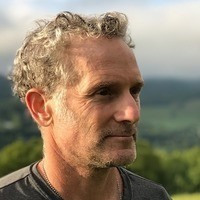The Greeter
They call me the Greeter. I sell shoes at the Boca Raton Town Center mall — bedazzled stilettos and platforms, neon-strapped pumps saved for special occasions. I stand by the entrance of the store, heels dug into the carpet, tummy tucked in, and I greet people. Hi, how are you, sunshine? Have you seen our shoes today?








